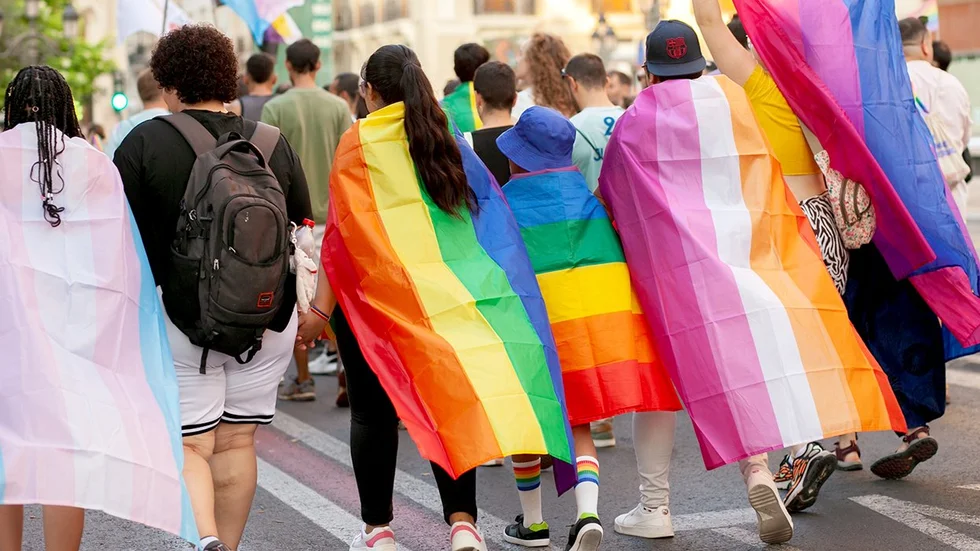Meta, the parent company of Instagram, is under fire for its treatment of LGBTQ+ users after journalist Taylor Lorenz revealed that the platform had restricted LGBTQ-related hashtags for months. The issue, reported in Lorenz’s Substack publication User Mag on Monday, has sparked criticism of Meta’s content moderation practices and repeated failures to support marginalized communities.
Keep up with the latest in LGBTQ+ news and politics. Sign up for The Advocate's email newsletter.
Lorenz, a journalist known for her reporting on technology and social media in The New York Times and, most recently, The Washington Post, uncovered that Instagram blocked users—especially teenagers—from searching hashtags like #gay, #lesbian, #trans, and #nonbinary under its “sensitive content” policy. The restrictions, which were in effect for months, were applied by default to teen accounts. When teens searched these hashtags, they were met with a blank screen and a prompt about Instagram’s content restrictions. Meta reversed the blocks only after Lorenz reached out for comment, User Mag reports.
Related: Watch Libs of TikTok’s Chaya Raichik exposed in stunning, cringe-worthy interview
“These search terms and hashtags were mistakenly restricted,” a Meta spokesperson told Lorenz. “It’s important to us that all communities feel safe and welcome on Meta apps, and we do not consider LGBTQ+ terms to be sensitive under our policies.” Meta added that it was investigating how the error occurred but provided no timeline for the investigation or concrete actions to prevent such mistakes in the future.
“Meta categorizing LGBTQ hashtags as ‘sensitive content’ is an alarming example of censorship that should concern everyone,” Leanna Garfield, social media safety program manager at GLAAD, told Lorenz. “These platforms are lifelines for young LGBTQ+ people, and restricting this content isolates them further.”
A GLAAD spokesperson also told The Advocate, “LGBTQ people all over the world, especially young people, use Instagram to express who they are and to find and be part of a community. A responsible and inclusive company would not build an algorithm that classifies some LGBTQ hashtags as ‘sensitive content,’ hiding helpful and age-appropriate content from young people by default.”
The spokesperson added that whether it was an unintended mistake, “Meta should remedy this issue immediately, publicly apologize to its LGBTQ users, and test significant product updates before launch.” They added, “Everyone, not just LGBTQ people, should be deeply concerned about the larger implications of this kind of content suppression.”
Garfield highlighted the damage that blocks like the one Meta had in place do.
Related: Instagram Is Blocking LGBTQ+ Accounts: Report
“For many LGBTQ people, especially youth, platforms like Instagram are crucial for self-discovery, community building, and accessing supportive information,” Garfield told User Mag. “By limiting access to LGBTQ content, Instagram may be inadvertently contributing to the isolation and marginalization of LGBTQ users.”
Reports of such challenges on Instagram are not new. In September 2023, Mashable highlighted the issue of shadowbanning—when content is flagged as “non-recommendable” and hidden from non-followers. LGBTQ+ creators were disproportionately affected by these restrictions. Topher Taylor, a sexuality educator and creator, told Mashable that his content had been categorized as non-recommendable for years because of reports from bigoted users. “You will get more reports if you’re visibly queer,” he said. Meanwhile, mainstream accounts promoting explicit or suggestive content, such as those tied to celebrities or brands catering to heterosexual audiences, often bypass these restrictions.
Related: Meta is failing its LGBTQ+ users, says new GLAAD report
The controversy over restricted hashtags is the latest in a series of criticisms against Meta. Last year, a GLAAD report revealed that Meta had failed to moderate harmful anti-trans content across its platforms, including Instagram and Threads. The report detailed violent speech and harassment targeting transgender and nonbinary users, much of which remained live despite clear violations of Meta’s community guidelines.
Meta also faced backlash in September for delaying the ban of far-right Republican Valentina Gomez, who used Instagram to spread antigay slurs and burn LGBTQ-themed books. In December, U.S. Rep. Nancy Mace of South Carolina posted videos on Instagram using a transphobic slur to mock protesters opposing her anti-trans bathroom bill. Despite repeated reports from advocacy groups, Mace’s videos remain live on the platform.
Critics argue that these incidents highlight systemic flaws in Meta’s approach to content moderation.














































































Here's our dream all-queer cast for 'The White Lotus' season 4